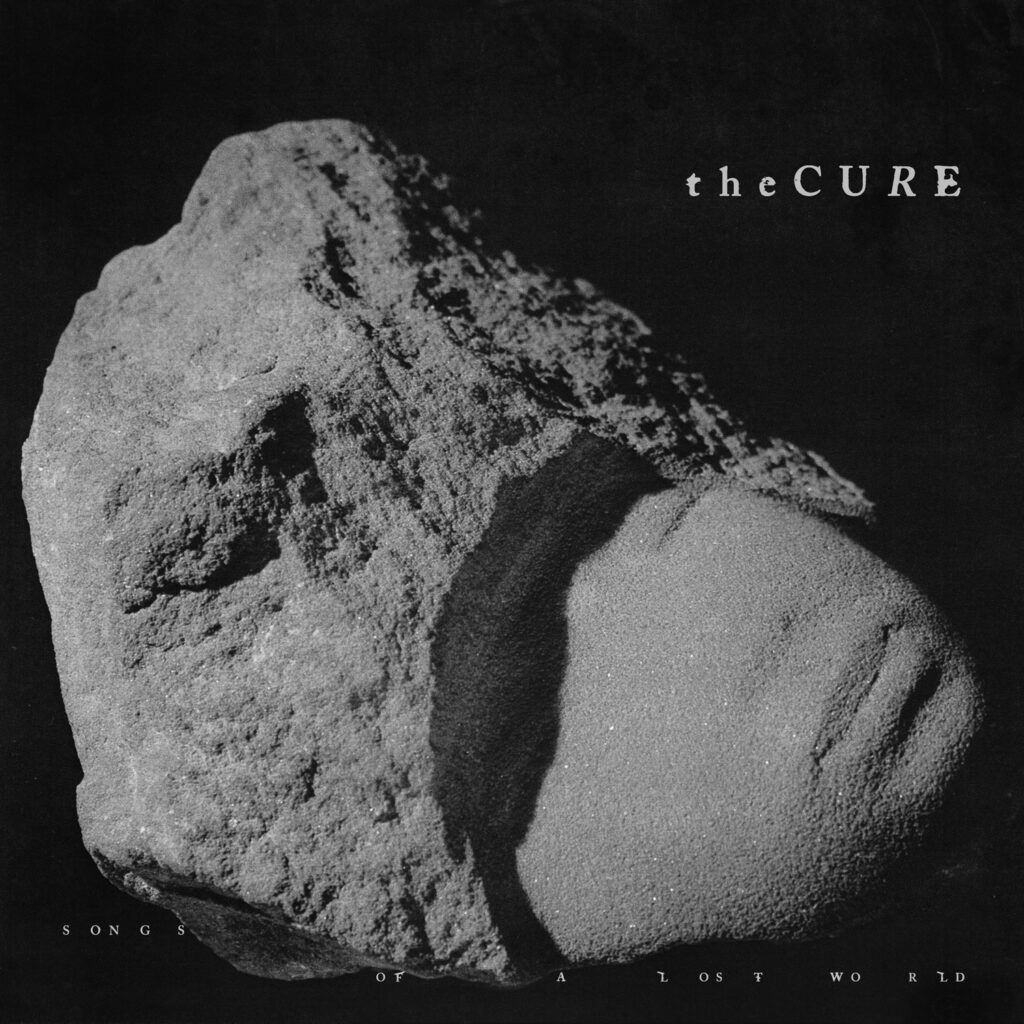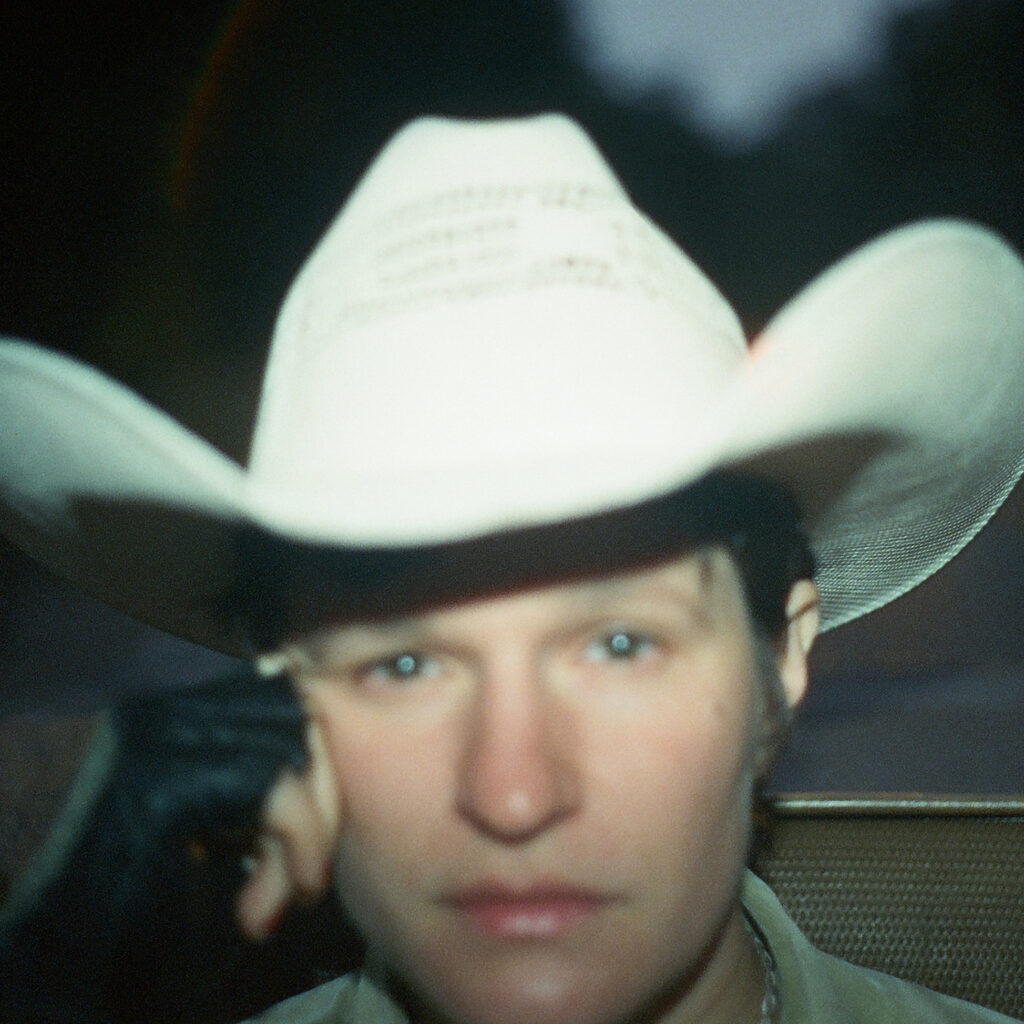Magdalena Bay, ‘Imaginal Disk,’ Aug 23, 2024

Something is inserted, or taken out, or examined
Something lies dormant inside and it’s been there all along
Or you’ve swallowed it, or you’ve spit it out
Ten years or ten moments ago
Reflected in my eyes or floating behind yours
In your mother’s mother or your child’s child
In dream or awakeSay hello, it’s you, the purest you
Implanted, impatient, impossible
In memory, mirror, and membrane
Divine digits, the nightmare lifts
It’s here, imaginal disk
Say hello, it’s you
Every night I pray to god that we could all use another album that has the equal artistic vision of Grimes’ Art Angels. In 2023, there’s Caroline Polachek’s Desire, I Want To Turn Into You. In June this year, there’s Charli XCX’s BRAT. Two months later, there’s Magdalena Bay’s Imaginal Disk.
Imaginal Disk is a concept album deeply rooted in sci-fi narrative and metaphorical introspection. The title is derived from the biological term “imaginal discs,” structures in insect larvae responsible for metamorphosis into adult forms. Magdalena Bay reconfigures this biological marvel into a science fiction saga involving extraterrestrial implants in primates to trigger consciousness, follows Tenenbaum’s character, True, who undergoes a procedure akin to a hardware upgrade, prompting her to explore what it means to be human. Through this narrative, the album masterfully addresses themes of self-improvement, evolution, identity, and the essence of human connections. While the sci-fi narrative is a compelling framework, the core of Imaginal Disk is profoundly philosophical and reaches out to meaningful human interactions. By embedding a sci-fi narrative within their music, Magdalena Bay challenges listeners to ponder morden existential realities through speculative fiction. The album’s theme is depicted beautifully in tracks such as Angel on a Satellite, where True experiences moments of clarity and connection, learning to appreciate life’s simple pleasur. The track Watching T.V. evokes the numbing nature of modern media consumption, encapsulated through imagery of screen-induced hypnosis and an existential cleansing desire. On True Blue Interlude, Tenenbaum sounds like a spokeswoman for disc-implant procedures: “It’s here. Say hello. It’s you,” she says with the hair-raising certainty of a shampoo voiceover introducing a celebrity’s brand-new face. Later, on Fear, Sex, she sounds suspicious of the very idea of the computer-enhanced human: “Shoulda known those dirty bastards/Would put wires in your head.”
Imaginal Disk is an experimental foray into diverse soundscapes, blending elements from various genres to create an utterly unique sonic experience. The album builds on the duo’s synth-pop roots while incorporating influences from disco, progressive rock, and psychedelia. The production is intentionally kaleidoscopic and anachronistic, drawing from a multitude of influences ranging from Flash Gordon to Peter Gabriel, and even Björk. This multifaceted soundscape is achieved through a blend of pioneering synths, live percussion, and lush orchestration, creating a dynamic auditory experience that subverts straightforward pop conventions. Tracks like Death & Romance demonstrate Magdalena Bay’s prowess in crafting catchy anthems with substantial emotional depth. This song, with its vibrant mix of piano, guitar, and synths, encapsulates the album’s aesthetic at its most ambitious. The track might be reminiscent of tracks with big-tent synth-pop appeal, from George Michael’s era, but instead, it pushes those sonics to embrace an edgier, more conceptual frame. In contrast, Tunnel Vision offers a softer approach, beginning as a lullaby and gradually building tension before reverting to its serene state. Rarely does pop music ascend to such an intellectual and emotional plane of Imaginal Disk. It’s dorky and strange and dramatic, like the duo themselves. And it sounds like nothing I’ve ever heard.
The Cure, ‘Songs Of A Lost World,’ Nov 1, 2024

Songs Of A Lost World is The Cure’s first full release of new material after a 16-year hiatus since their last album 4:13 Dream in 2008. Songs Of A Lost World is a grandeur work characterized by exploring universal themes of loss, anger, mortality, and introspection. Robert Smith, the band’s iconic frontman and primary songwriter, delves deep into his personal experiences, particularly the grief stemming from the loss of his parents and sibling, which cast a long shadow over the songs. From the opening track Alone, which begins with the poignant line “This is the end of every song that we sing,” to the closing Endsong, these themes create a cohesive narrative of reflection and acceptance. This thematic maturity suits The Cure, after all, they are a band whose music has long dwelled on existential and melancholic subjects. Tracks on this album weave together a narrative of life’s impermanence and the emotional weight of personal and collective struggles. This introspective journey is evident in tracks like I Can Never Say Goodbye and And Nothing Is Forever, which echo themes of the complexities of grief, fleeting existence, and the inescapable nature of time. Robert Smith’s lyrics are always a focal point of The Cure’s music. In Songs Of A Lost World, they capture the bittersweet recognition of the inevitability of change and the inexorable passage of time. In Alone, he sings “The birds, falling out of our skies/And the words, falling out of our minds,” depicting an existential drift. In A Fragile Thing, Smith’s words echo a mantra of acceptance in the face of mortality: “Nothing you can do to change the end.”
Songs Of A Lost World features an intricate fusion of post-punk and gothic influences, maintaining The Cure’s signature atmospheric soundscapes. The instrumentation is richly layered, with Reeves Gabrels’ debut on guitar bringing a psychedelic edge to the mix. The album’s arrangement is marked by a velvety softness that envelops the listener. The guitars are ethereal, leaving auditory traces, while the keyboards shimmer with a haunting presence. The rich sonic layers feel like a nod to The Cure’s past albums, particularly Disintegration and Pornography. The album does not resort to excessive embellishments, instead opting for a sound that feels both grand and restrained. Tracks like Drone:Nodrone stand out with its steely, gothic funk riff, providing a rare uptempo departure from the otherwise somber pace. The album’s production is overseen by Robert Smith in collaboration with Paul Corkett, a partnership reminiscent of the “Bloodflowers” era. While Songs Of A Lost World is not as angry as Pornography or as claustrophobic as Disintegration, it still leaves listeners strangely exhilarated and uplifted.
Adrianne Lenker, ‘Bright Future,’ Mar 22, 2024

Adrianne Lenker’s sixth solo studio album, Bright Future, is deeply influenced by notions of time and reminiscence. Lenker, who is celebrated for her work as the lead vocalist of Big Thief as well as her solo projects, delves into childhood memories, familial bonds, and the relentless flow of time, revisiting past experiences to make sense of present emotions. Lenker’s lyrics on Bright Future are a mixture of raw honesty and elaborate metaphors, encompassing fragmented yet impactful storytelling. From the very start, in the track Real House, Lenker reminisces about her mother and lost childhood innocence, interwoven with intricate reflections on current vulnerabilities, singing poignant lines like, “I’m 31 and I don’t feel strong/Your love is all I want.” Bright Future carries a meditative, almost philosophical air, contemplating themes such as the unpredictability of love and the passage of time. This is particularly witnessed in tracks like Sadness As A Gift, which aptly captures the weight of relationship endings juxtaposed with hope: “We could see the sadness as a gift and still/ Feel too heavy to hold.” In Evol, a clever play on words transforms the word ‘love’ backward into ‘evil,’ a move that invites reflection on the complex nature of romantic relationships. The album also carries Lenker’s environmental concerns and existential musings. In Donut Seam, she sings, “This whole world is dying / Don’t it seem like a good time for swimming / Before all the water disappears?” Bright Future is anchored in indie folk and embraces a minimalist yet complex arrangement style echoing Lenker’s previous work while forging new paths. Lenker’s compositions in this album frequently employ a free-form, intuitive style, reminiscent of her past solo projects such as Abysskiss and Songs. Producer Philip Weinrobe and Lenker opted for an entirely analog production process, deliberately avoiding modern digital interfaces to capture the raw, unfiltered emotional essence of the performances. This process allows natural imperfections, like the hiss of analog tape and ambient background noises, to become integral to the album’s sonic landscape, reinforcing its themes of memory and nature. The album’s production also leverages unique instrumental textures, employing acoustic guitar, piano, wind chimes, and subtle layers of violin and banjo to paint serene, textured soundscapes. For fans of Lenker’s work with Big Thief, Bright Future offers everything one might expect and more— a thoughtful exploration of human connection, memory, and emotion, all wrapped in the warmth of analog sound.